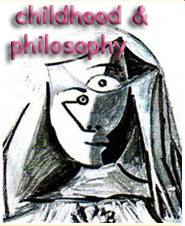philosophy for children, learnification, intelligent adaptive systems and racism – a response to gert biesta
DOI:
https://doi.org/10.12957/childphilo.2017.30014Keywords:
philosophy for children, learnification, community of inquiry, racism, reasonablenesAbstract
Gert Biesta presented at the 2017 ICPIC conference in Madrid and published his paper in this Special Issue. In this short paper I attempt to bring into conversation his presentation, P4C practice, and work on racism and the Community of Inquiry. I do so by asking two main questions: 1) Is P4C an example of what Biesta terms ‘The Learnification of Education’? 2) Does the Community of Inquiry produce ‘Intelligent Adaptive Systems’? In so doing, I attempt to open up for further contributions an inquiry into the responsibilities of the teacher, particularly in conditions of continuing racial inequality and the extent to which the Community of Inquiry approach encourages participants to ask ‘is this an environment worth adapting to?’ I consider this question with reference to Matthew Lipman’s notion of ‘reasonableness’, Nicholas Burbules’ phrase ‘the hegemony of reasonableness’ and Gert Biesta’s notion of ‘grown-up-ness’.




